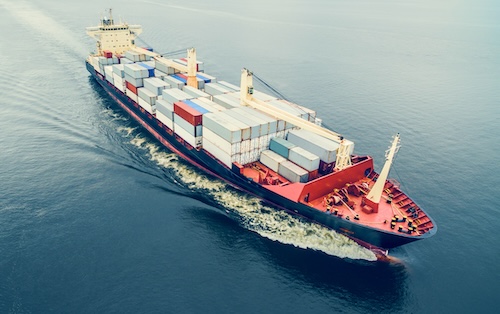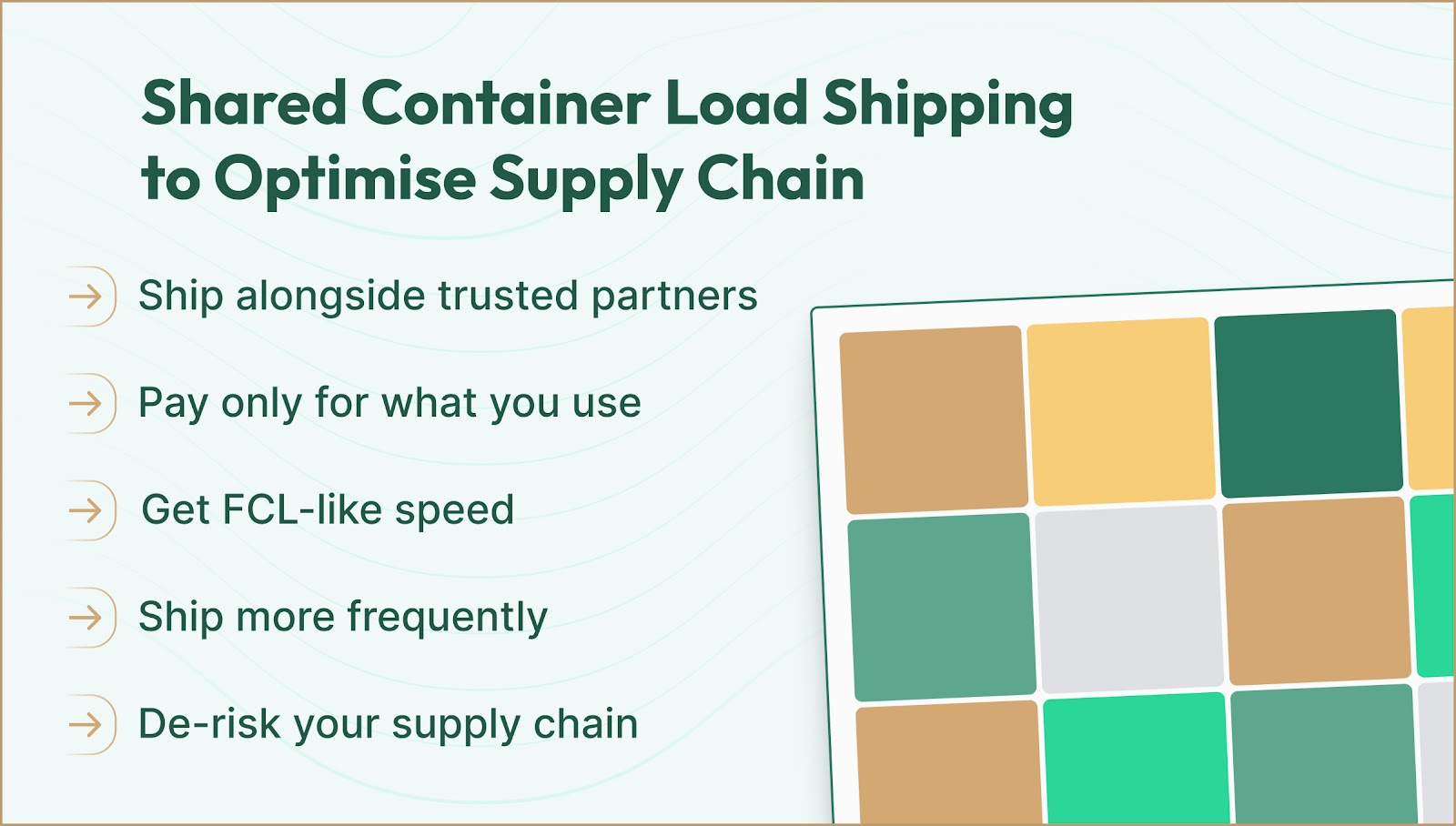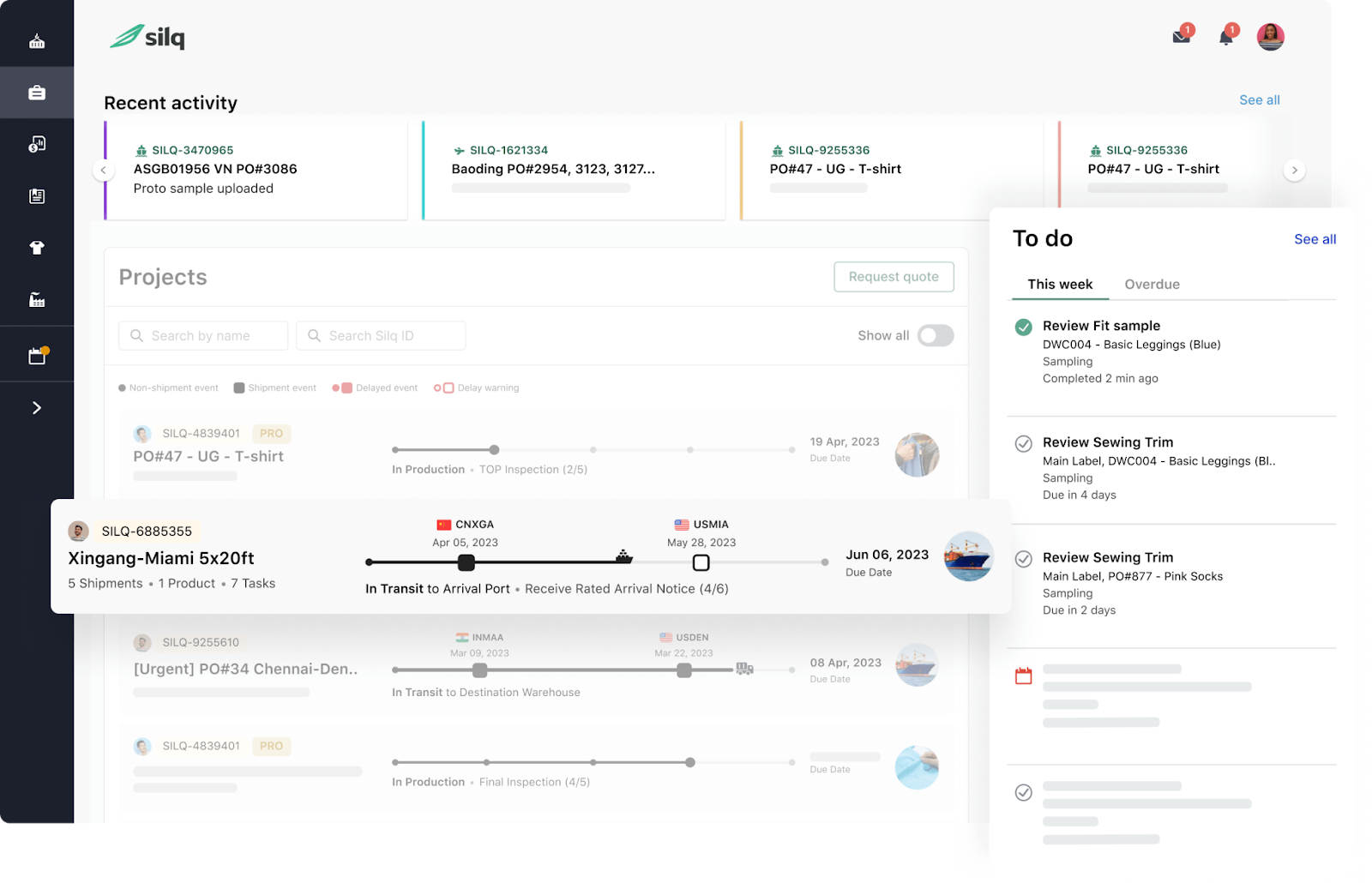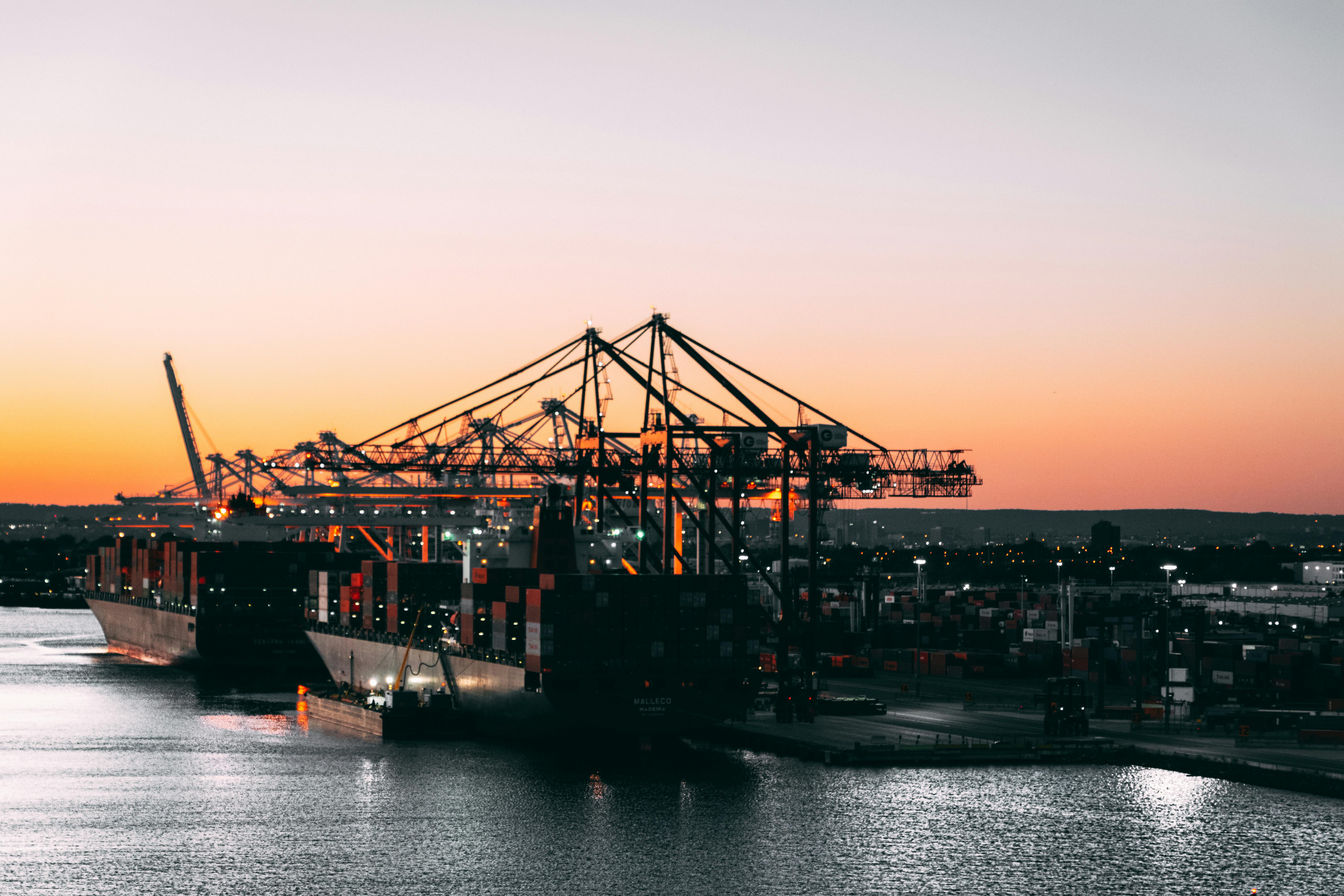How to Optimize Shipping Costs With Shared Container Loads (SCL) Shipping

What if you could ship smarter, faster, and more cost-effectively—without the typical trade-offs of traditional shipping methods?
For many businesses, managing international freight often feels like a balancing act between cost, speed, and efficiency, made even more challenging by navigating a web of stakeholders and processes.
This is where Shared Container Load (SCL) shipping steps in. More than just a shipping option, SCL is a strategic solution that helps businesses unlock cost savings, mitigate inefficiencies, avoid the pitfalls of less than container load (LCL), and embrace the benefits of full container load (FCL) shipping.
In this article, we’ll explore how adopting SCL can empower shippers to cut operational costs and build more resilient supply chains, turning logistical challenges into opportunities for growth.
How to Leverage SCL To Optimize Your Supply Chain

Silq's Shared Container Load is the easiest, most cost-effective solution for moving shipments between 15-50 cbm globally. With our Shared Container Load service, shippers can easily combine the benefits of both LCL and FCL shipping, enhancing your supply chain's ability to
- Ship alongside trusted shippers: Share containers with other vetted shippers, ensuring your cargo is in reliable company.
- Pay only for the space you use: No more paying for an entire container when you only need a portion.
- FCL like speed, LCL like flexibility : Skip the deconsolidation warehouse by leveraging Silq's milk-run delivery model at destination.
- Ship more frequently: Build Agility by shipping smaller quantities more frequently.
- De-risk your supply chain: Split your POs into multiple shipments for flexibility and security.
Cost Benefits of Shared Container Load Shipping
Shared Container Load shipping offers a distinctive advantage by providing the FCL experience while leveraging the principles of LCL shipping. Here’s how SCL can drive value for your business:
1. Decreased Shipping Costs
LCL shipping allows businesses to pay only for the space their cargo occupies, making it an affordable option for smaller shipments. However, as cargo volume approaches 20 cbm or rather occupies greater than 30% of the available space in a container, LCL becomes more expensive than FCL. This is where SCL shines.
By releasing unused space to Silq, we match other equally vetted clients moving on the same sailing, ultimately providing a more cost-effective rate for medium-large shipments.
Read More: Minimizing Cost And Maximizing Efficiency in Logistics Operations
2. Lower Inventory Carrying Cost
SCL shipping enables businesses to expand into new markets without the financial strain of FCL commitments or the limitations of LCL. Often, businesses are forced to ship higher levels of inventory to justify the cost of FCL.
With SCL, shipments can be sized to match demand, reducing the need for overstocking and optimizing inventory levels. This flexibility allows businesses to respond to market growth while keeping costs under control.
3. Reduced Handling Costs
Traditional LCL shipping involves multiple touchpoints, as containers are shared by numerous shippers with varying delivery stops. This increases the likelihood of theft, damage, and higher handling fees.
SCL shipping significantly reduces these risks by limiting consolidation to two shippers along the same route. Fewer touchpoints mean lower handling costs, reduced risk of loss or damage, and greater peace of mind for shippers.
How to Optimize Operational Costs Through SCL Shipping
While Shared Container Load (SCL) shipping offers significant cost-saving potential, achieving these benefits requires deliberate planning and execution. Businesses can adopt effective strategies to fully leverage this shipping model's advantages. Here’s how:
1. Accurate Planning and Forecasting
Success with SCL shipping hinges on precise demand forecasting and meticulous planning. Given the collaborative nature of SCL, it is imperative to align with compatible partners to share container space effectively. This involves:
1. Identifying shippers with similar cargo types or compatible shipping schedules (e.g., food shippers consolidating with other temperature-sensitive goods rather than non-aligned items like furniture)
2. Accurately measuring cargo dimensions and determining container space requirements
3. Scheduling shipments with sufficient lead time to ensure seamless consolidation
Silq simplifies this process by pre-vetting shipper partners and managing the logistics of shared container operations, allowing businesses to focus on their core operations without logistical headaches.
2. Consolidation and Collaboration
Consolidation and collaboration are at the core of SCL shipping. The process involves pairing shipments from compatible shippers and carefully arranging cargo within the container to maximize space while maintaining security.
Key considerations for successful consolidation include:
1. Compatibility: Ensuring that the cargo types and shipping timelines align to avoid conflicts or delays.
2. Optimized container loading: Proper planning to maximize space utilization while maintaining the safety and integrity of the cargo.
3. Secure packaging and labeling: Using appropriate packaging to protect goods and ensure they are easily identifiable during transit.
Efficient consolidation not only reduces costs but also minimizes the risks associated with excessive handling, providing a more reliable shipping experience.
Read More: What Is Cargo Consolidation & How to Use It for Efficient Delivery
3. Risk Mitigation
Navigating risks in shared shipping requires expertise and proactive measures, and Silq delivers on both fronts:
1. Comprehensive cargo insurance protects against unexpected losses or damages.
2. Regulatory compliance ensures shipments meet all customs and safety standards, avoiding costly delays or penalties.
Read More: Key Strategies To Ensure Cargo Safety During Logistics Operations
4. Leveraging Technology Solutions
Technology plays a pivotal role in streamlining SCL shipping operations. Advanced digital tools enable seamless coordination, tracking, and risk management. Platforms like Silq’s freight forwarding platform offer:
1. Real-time visibility into the shipping process, enabling stakeholders to monitor every stage of the journey.
2. Custom workflows for tailored consolidation and cargo management.
3. Proactive risk management through data-driven insights that help address issues before they escalate.
By integrating technology into SCL shipping, businesses can significantly enhance operational efficiency and reduce costs.

Want the ultimate solution for your shipping or international transportation needs? Get started here.
Ready for Supply Chain Predictability?
Importers using Silq ship smarter, safer, and with total control.







